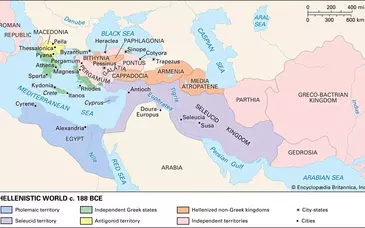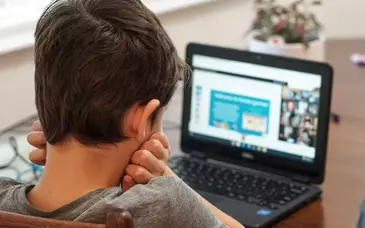Name puzzles have become a favorite among parents, teachers, and child development experts—and for good reason. These personalized wooden or foam puzzles are more than just charming keepsakes or nursery decorations. They’re powerful tools that support early childhood development in ways that are both fun and foundational. In this article, we’ll explore the top benefits of name puzzles, from boosting motor skills to enhancing language learning, and explain why they’re a smart gift idea for any toddler or preschooler.
1. Promotes Letter Recognition
One of the biggest benefits of name puzzles is how effectively they help children recognize and learn the letters of their name. By interacting with each piece individually, children begin to associate the shape and sound of each letter with the overall word—their own name.
Unlike flashcards or alphabet posters, name puzzles offer a tactile and interactive experience. When a child picks up the letter “A” in “Ava,” places it into the correct spot, and hears a parent say the letter out loud, it creates a multi-sensory learning moment. This accelerates retention and builds letter familiarity faster than passive observation.
2. Encourages Early Spelling and Reading Skills
Children typically learn to spell and read their own names before anything else. With name puzzles, the process of placing each letter in order introduces the basics of spelling in a hands-on way. They’re physically organizing letters in a sequence, seeing how each piece contributes to a meaningful whole.
As children become familiar with their name puzzle, they start to “read” it. Even before they can identify other words, they understand that the letter sequence represents something meaningful—themselves. This is an exciting and empowering milestone that often sparks interest in spelling other names and words.
3. Builds Fine Motor Skills
Fine motor development is crucial in the early years, laying the groundwork for writing, self-care tasks, and even playing musical instruments later in life. Name puzzles are perfect for strengthening the tiny muscles in a child’s hands and fingers.
Each letter must be grasped, rotated, and fitted into place, which requires precision and coordination. Over time, repeated use helps improve hand-eye coordination, grip strength, and dexterity. Many name puzzles include knobs or pegs to help younger toddlers manipulate the pieces, gradually increasing the challenge as they grow.
4. Improves Problem-Solving Abilities
Puzzles in general are great for teaching logic, sequencing, and critical thinking—and name puzzles are no different. Children must determine where each letter goes, how it fits, and in what order. Even though they are familiar with their name, this kind of task helps boost spatial reasoning and analytical thinking.
Unlike regular puzzles with generic shapes or pictures, name puzzles have an added layer of personalization. Kids are more invested in completing them because the result is their name. This extra emotional connection can keep them more engaged and motivated to solve the puzzle repeatedly, which reinforces the skills being practiced.
5. Boosts Memory and Cognitive Development
As children begin to memorize the order and shape of letters in their name, they are flexing their memory muscles. Over time, they’ll remember where each letter belongs and how the completed puzzle should look, strengthening their working and visual memory.
This memory training pays off in other areas, such as remembering instructions, learning routines, or recognizing patterns in more complex academic subjects later on.
6. Supports Language Development and Speech
Name puzzles can also serve as a foundation for language development. As parents or caregivers interact with the child during play—saying each letter, sounding them out, using the full name in a sentence—they’re modeling proper speech and vocabulary.
Children naturally imitate what they hear. So, name puzzles become an opportunity to build sentence structures (“B is for Bella!”), reinforce phonics (“M makes the ‘mmm’ sound”), and introduce descriptive language (“That’s the red letter R”).
This consistent verbal engagement during play fosters communication skills, boosts confidence, and lays a foundation for expressive language.
7. Fosters Independence and Confidence
Every time a child completes a name puzzle on their own, they experience a mini confidence boost. They’re proud of themselves for identifying the letters, remembering the sequence, and completing the task. This feeling of accomplishment helps nurture self-esteem and a sense of capability.
Because name puzzles are usually simple enough for toddlers to attempt solo, they promote independent play—a critical developmental stage. Kids learn that they can do things without constant adult help, which builds emotional resilience and encourages further exploration.
8. Encourages Emotional Connection and Identity
Your name is one of the first things that defines you, and for young children, recognizing and identifying with their name is an early form of self-awareness. A name puzzle helps solidify this concept.
When children play with their own personalized puzzle, they learn to take ownership of their identity. They begin to understand: “This is me. This is my name.” It becomes a tangible link to who they are, which can help foster pride, stability, and a deeper sense of self.
This emotional connection is especially helpful for children entering preschool or daycare. Being familiar with their name gives them a head start on recognizing labels, cubbies, name tags, and other identifiers.
9. Makes a Meaningful and Memorable Gift
Looking for a gift that’s cute, educational, and sentimental? A name puzzle checks all the boxes. Whether for a birthday, holiday, baby shower, or milestone celebration, name puzzles offer a personalized touch that feels special and thoughtful.
Unlike plastic toys that break or go out of style, name puzzles are often made from high-quality wood and can last for years. Some parents even keep them as keepsakes long after their child has outgrown them. It’s a gift that grows with the child—from learning letters as a toddler to a cherished memory in their teens.
10. Inspires Creativity and Open-Ended Play
Some name puzzles go beyond simple letter placement and offer interchangeable shapes, colors, or themes—like animals, vehicles, or nature scenes. These added elements invite imaginative play and creativity.
A child might use the letters to spell other words, line them up in new arrangements, or even trace them with crayons on paper. Others may incorporate the puzzle pieces into pretend play, assigning characters to each letter or building stories around them. These creative extensions enrich cognitive development and provide hours of screen-free entertainment.
11. Easy to Integrate into Daily Routines
One underrated benefit of name puzzles is how easily they can be integrated into everyday life. They don’t require batteries, apps, or setup. You can keep one on a nursery shelf, in a toy rotation bin, or even at the dining table for post-meal play.
They’re also great travel companions. Compact and lightweight, name puzzles can be taken on car rides, plane trips, or even brought along to restaurants to keep little hands busy in a quiet way.
And because they don’t rely on internet access or adult supervision, they make for an excellent quiet-time or solo-play activity that still supports learning.
12. Eco-Friendly and Safe for Toddlers
Most high-quality name puzzles are crafted from natural wood and painted with non-toxic, child-safe paints. That makes them a safe and eco-conscious alternative to mass-produced plastic toys.
Parents who prioritize Montessori or Waldorf-inspired toys especially love name puzzles for their simplicity and sensory appeal. The smooth wood, vibrant colors, and gentle edges are designed with toddlers in mind.
Some puzzles even come with rounded pegs or large letters that are easy for tiny fingers to grasp, ensuring a safe and enjoyable experience for all ages.
Final Thoughts: A Small Toy With Big Impact
At first glance, a name puzzle might seem like a simple toy. But beneath its colorful surface lies a powerful learning tool that supports nearly every area of early childhood development—from fine motor skills to early literacy, from memory to self-confidence.
It’s no wonder these personalized puzzles have become must-haves in modern playrooms and classrooms. They combine the charm of a handcrafted gift with the educational benefits of a learning aid. And best of all, they grow with the child, offering value far beyond the toddler years.



